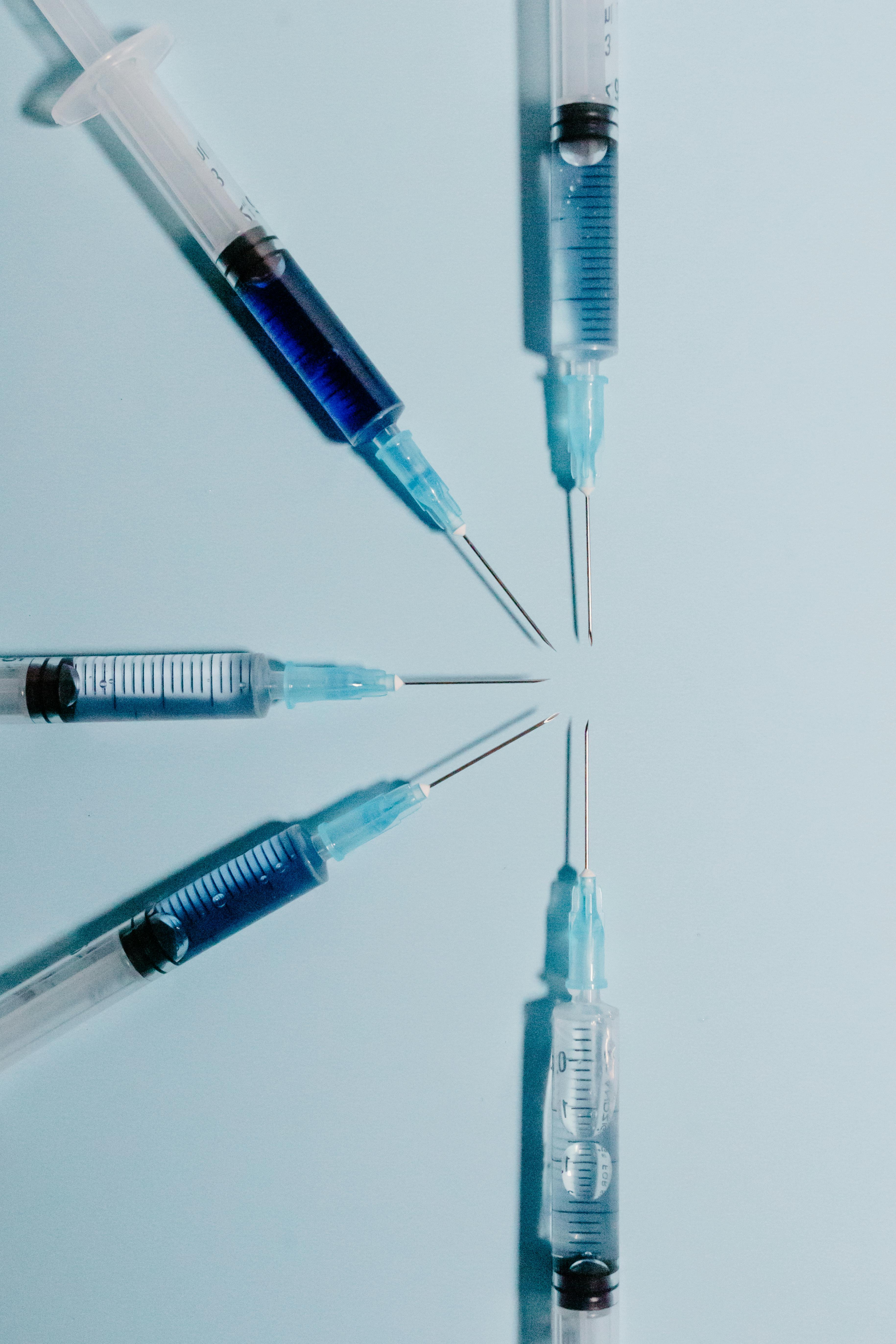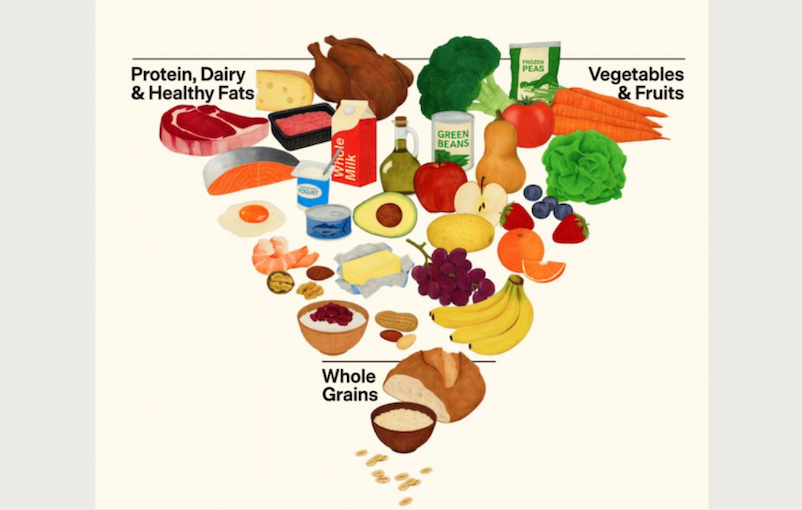9 Ways Couples Can Enhance Fertility Together
Learn how to boost and support a healthy pregnancy.
.avif)
A primary care membership for patients who want more. Primary Care. Nutrition. Wellness. All under one roof.
There are moments along the journey to conception that may feel like navigating uncharted territory, leaving you in a space-in-between and uncertain about the path ahead. However, here is the uplifting truth: You hold more influence than you may realize.
The decisions you make each day hold immense importance in shaping the quality of your eggs and sperm, particularly in the 100 days leading up to conception. By wholeheartedly embracing the lifestyle choices outlined in this guide as a team, you can significantly support the journey to conception, a healthy pregnancy and the arrival of a cherished little one into your lives.
#1 Boost Your Nutrition Together- Take a high-quality prenatal supplement
Most women know to begin taking a prenatal supplement when they become pregnant. But to optimize your chances of conception and a healthy baby, it’s best for both of you to begin taking a high-quality prenatal at least three months before conception.
By starting a supplement before you become pregnant, your eggs and sperm will be as healthy as possible at the point of conception. You’ll also have peace of mind knowing your baby is receiving vital nutrients before you even know you’re pregnant.
The best prenatal supplements include sufficient forms of nutrients and doses shown to meaningfully impact fertility:
For Women
- Methylated B vitamins—especially folate (not folic acid) and B12
- L-Carnitine
- Choline
- Vitamin D
- Broad-spectrum antioxidants
- Inositol
For Men
- Methylated B vitamins, especially folate (not folic acid) and B12
- Broad-spectrum antioxidants
- Vitamin D
- CoQ10
- Maca
- Zinc
A Prenatal Brand We Love?
WeNatal makes it easy to recommend their prenatals. In addition to having an all-star lineup of bioavailable ingredients at research backed amounts, they understand the importance of including men in the fertility equation and the mind and body connection.
WeNatal Difference:
- 100% Clean Formula: no synthetic dyes, fillers, preservatives, or artificial ingredients.
- Right Nutrients, Right Dose. Research Backed, Clinically Tested: formulated with key, hard to find nutrients, including folate and choline, in the most bioavailable form.
- Just Three Pills Daily: nutrient density of 6 to 8 pills packed into just 3 a day.
- Attention to Men’s Health: unique formula to promote fertility for the other half of the equation.
- The only Supplement with a Holistic Approach: supporting mind and body with effective tools like the WeNatal Journal.
To check them out and receive a FREE 30-day supply of their Omega DHA+ fish oil ($34.95 value) with purchase of subscription, head to wenatal.com/thelanby
#2 Be Mindful of What You Eat.
This will come as no surprise: What women eat during pregnancy impacts their baby’s development. But diet also impacts the health of both sperm and eggs, which means by being mindful of what you put in your bodies, you can increase your chances of conception. Plus, by creating healthy habits prior to conceiving, you set yourself up to thrive during pregnancy, postpartum, and beyond.
In general, focus on eating clean, pesticide-free, hormone-free, chemical-free, locally grown and raised foods. Remember, the foods you eat will build the habitat for your soon-to-be baby.
Purchase organic and grass-fed or pasture-raised meats. Yes, it’s more expensive, but you don’t need a lot of it to benefit from meat’s nutrients. TIP: Check the Environmental Working Group’s (EWG) annual Dirty Dozen and Clean Fifteen. For everything on the Dirty Dozen list, buy organic.
Healthy Fats:
Good fats are essential for fertility health. Omega-3 DHA, a particular type of fat, has been shown to increase progesterone, encourage ovulation, and improve egg and sperm quality. Healthy fats play a major role in hormone production, brain health, and absorption of antioxidants, vitamins, and other essential nutrients. All these are vital for the health of eggs, sperm, embryos, and developing babies.
Foods with the most omega-3 fatty acids include:
Wild-caught fish or seafood low in mercury. Two servings (or 12 ounces) per week will guarantee you get the recommended daily allowance of DHA. Try salmon, anchovies, flounder, catfish, Arctic cod, Atlantic haddock, herring, pollock, sardines, sole, scallops, shrimp, trout, whitefish, and oysters.
Nuts and seeds: Flax seeds, sunflower seeds, pumpkin seeds, sesame seeds, hemp seeds, Brazil nuts, walnuts, almonds, and cashews are rich in protein, zinc, vitamin E, and an omega-3 called ALA.
Chia seeds: Rich in the omega-3 fatty acid ALA—along with minerals like calcium, magnesium, iron, and potassium—chia seeds have an ideal balance of soluble and insoluble fiber.
Avocados and olives: Proven to be anti-inflammatory, the fat from avocados and olives support healthy eggs and sperm.
Eggs with the yolk: Ounce-for-ounce, eggs with the yolk are one of the most nutrient-dense foods available and one of only a few non-seafood dietary sources of DHA. If you’ve been avoiding egg yolks because of cholesterol, remember that cholesterol is the building block of all your hormones. A lack of cholesterol negatively affects fertility.
Liver and other organ meats: These meats are rich in almost every essential vitamin and mineral and in healthy fat that leverages absorption of those nutrients.
Antioxidants: Antioxidants play a crucial role in promoting fertility health by protecting the reproductive system from oxidative stress and damage caused by free radicals. Here are some important antioxidants that can support fertility health: Vitamin E, C, folate, zinc, CoQ10, and Selenium. The best food sources are dark leafy greens, and fruits such as berries.
#3 Cook Together
If you’re not already in the habit, switching to clean, home-cooked meals can feel overwhelming. It’s a lot easier—and you’ll have more success—if you commit to the journey as a couple.
When you put in the effort to buy ingredients and prepare food from scratch together:
- You’ll be more likely to eat that food than opt for take-out or processed foods.
- You can hold one another accountable to sticking with your new healthy lifestyle.
- You’ll feel more empowered to experiment and find things you both enjoy.
- You’ll have another reason to connect with each other.
- You’ll build teamwork, strengthen your relationship, and have fun.
- You’ll finish the work twice as fast.
#4 Drink Plenty of Clean Water.
Our bodies require sufficient hydration to function properly. Our blood, muscles, and brain are mostly water, and water is essential for building healthy cervical fluid, follicle, and semen fluid.
The quality of the water you drink is almost as important as the quantity. You might think buying bottled water is the way to go, but:
- Most bottled waters aren’t as pure as they claim.
- Many bottled waters contain heavy metals at higher levels than allowed.
- Plastic bottles are manufactured with bisphenol A (BPA), an endocrine disruptor that leaches into the water the bottle contains. Multiple studies have shown BPA has a direct negative impact on egg quality, sperm quality, and fertility.
- BPA-free bottles are equally—or even more—toxic.
For preconception and pregnancy (and beyond), it’s best to invest in a high-quality filter to eliminate not only fluorine and chlorine, but also pathogens, bacteria, dangerous heavy metals and chemicals, and medication.
#5 Detox Your Surroundings- Get Some Fresh Air.
When we think about pollution, we imagine smog-choked urban centers. But the truth is, no matter where we live, we’re all at risk of breathing in pollutants on a daily basis. Why? Because indoor air has been proven to be even more toxic, and we spend 90% of our time inside.
Of particular concern are volatile organic compounds (VOCs), which are emitted as gasses from materials such as PVC flooring, oil-based paints and adhesives, cleaning fluids, floor waxes, gas stoves, synthetic upholstery, cosmetics, and cigarette smoke. VOCs have been linked to increased oxidative damage, DNA fragmentation, pregnancy loss, premature births, and decreased fertility rate.
To improve your indoor air quality at home or work:
- Open your windows every morning
- Hop on the plant-parent bandwagon
- Ditch air fresheners and scented candles
- Invest in an air purifier
- Swap out your linens to clean organic brands
#6 Rethink Your Skincare Routine.
On average, women use nine personal care products daily and are exposed to 126 unique chemical ingredients—some of which are carcinogenic and endocrine-disrupting.
Common toxins to avoid include:
- Phthalates
- Parabens
- Sodium laureth sulfate
- Triclosan
- Aluminum
- Fragrances (Surprising, isn’t it? The word fragrance is an umbrella term for dozens of different unregulated ingredients—many of which are known to be toxic.)
If you discover these chemicals in your products but can’t swap them all out right away, start with the ones you use on a daily basis and that you apply to the largest areas of your body (think body lotion, body wash, and soaps).
Switching to non-toxic products can be tricky because most product labels include dozens of unfamiliar and unpronounceable ingredients. The EWG Skin Deep website and Think Dirty app offer helpful information. To purchase non-toxic personal care products, visit Thrive Market or specialty beauty shops such as Detox Market.
#7 Scrutinize Your Cleaning Supplies.
Many people assume cleaning products are safe because they’re designed to rid our homes of germs, dust, and other contaminants. But on average, we’re exposed to 62 toxic chemicals—right in our own homes:
- Phthalates in dish soap, toilet paper, facial tissue, and laundry detergents and softeners
- Triclosan in liquid dishwashing detergents and soaps labeled “antibacterial”
- Quaternary ammonium compounds found in fabric softeners and “antibacterial” cleaners
- 2-Butoxyethanol found in window, kitchen, and all-purpose cleaners
- Ammonia found in polishing agents for bathroom fixtures and glass cleaner
- Chlorine in scouring powders, toilet bowl cleaners, and laundry whiteners
- Sodium hydroxide in oven cleaners
These nasty chemicals have been linked to asthma, cancer, reproductive disorders in women and men, hormone disruption, and neurotoxicity.
It’s hard to believe, but cleaning products simply aren’t subject to safety standards, and neither is there testing data or notifications required before bringing a product to market. And get this: Just because a cleaning product claims to be “green,” “natural,” or “biodegradable” doesn’t necessarily mean it’s nontoxic.
Thankfully, you have options:
- Make your own natural products with baking soda, vinegar, and essential oils.
- Use EWG Guide to Healthy Living or Think Dirty App to evaluate the safety of your current products and to discover non-toxic choices.
- Get clean cleaning products: Check out Seventh Generation, Blueland, and Branch Basics.
#8 Enhance Your Emotional Wellbeing- Practice Gratitude.
Embarking on the conception journey can put a lot of pressure on each of you as individuals and on your relationship together. When you take time every day to remind each other what brings you together, you’ll feel empowered to keep going.
Set aside time when you can be together—without distraction or hurry. Maybe it’s in
the morning before getting out of the bed, during breakfast, or as you take an after-dinner walk. Then, try these conversation starters:
- Tell each other three things you’re grateful for.
- Share three positive things that happened that day.
- Leave notes around the house to remind your partner how important they are to you.
- Ask your partner how you can better support them, and then share what support you need.
- Journal your thoughts: One of the most meaningful ways to connect as a couple is to journal about the family you want to create together
#9 Discover Healthy Ways to Manage Stress.
When we experience stress, our brain sends signals through our autonomic nervous system telling our adrenal glands to release the hormones epinephrine (adrenaline) and cortisol into the bloodstream.
That surge of hormones gives us the energy to do what we need to do to eliminate the stress that triggered it. So, in the short-term, stress is OK. But most of us experience stress constantly, and our bodies simply aren’t designed to handle that.
Over the long haul, elevated cortisol levels cause a cascade of hormonal imbalances, which in turn negatively impacts the menstrual cycle, ovulation, and implantation. Prolonged exposure to stress also causes an imbalance of free radicals to build up in our bodies, which can negatively affect both egg and sperm quality.
Regardless of whether stress is impacting your chances of getting pregnant, you may benefit from finding new ways to reduce and manage stress.

If you're curious to learn more about The Lanby, book a free consult call and we'll chat about how The Lanby can be your personalized long term health and wellness partner.

Kendall is a graduate of the University of Mississippi, with a B.A. in Integrated Marketing Communications and a minor in Business Administration. She received her certificate of Nutrition Science from the Friedman School of Nutrition at Tufts University.

Chloe holds a bioengineering degree from the University of Pennsylvania. As a breast cancer survivor, her insights shape The Lanby's patient-centric approach. Leveraging her healthcare strategy background, Chloe pioneers concierge medicine, bridging gaps in primary care.

Tandice was recognized with the Health Law Award and named a Ruth Bader Ginsburg Scholar at Columbia Law School. Tandice's editorial role is enriched by her insights into patient autonomy and gene modification legalities. Passionate about bioethics, she is committed to crafting patient-centric healthcare solutions.





